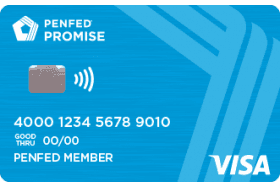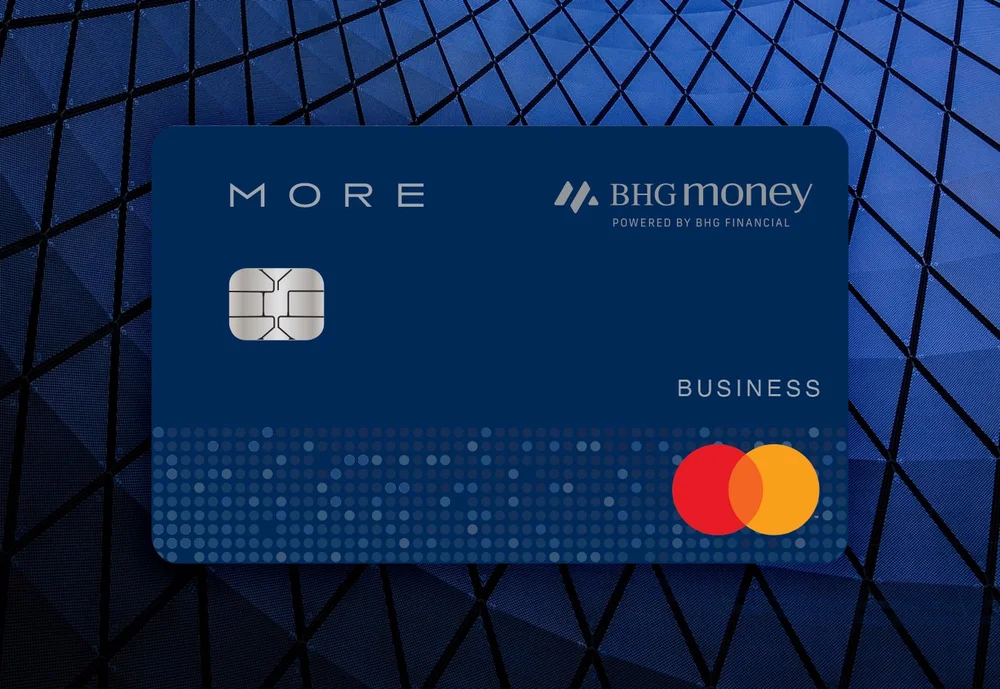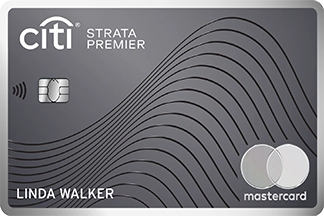- myFICO® Forums
- FICO Scoring and Other Credit Topics
- Understanding FICO® Scoring
- Re: Utilization vs. AAoA
- Subscribe to RSS Feed
- Mark Topic as New
- Mark Topic as Read
- Float this Topic for Current User
- Bookmark
- Subscribe
- Mute
- Printer Friendly Page
Utilization vs. AAoA
Is your credit card giving you the perks you want?
Browse credit cards from a variety of issuers to see if there's a better card for you.
- Mark as New
- Bookmark
- Subscribe
- Mute
- Subscribe to RSS Feed
- Permalink
- Report Inappropriate Content
Re: Utilization vs. AAoA
@WhiteCleats wrote:2 years is considered "solid enough"? Because my target goal is a 0% or 1.9% interest rate on a new car. Though I'm not sure how realistic that is.
What I mean by "solid enough" is that once you obtain a 2 year AAoA or greater, IMO, that will no longer hold you back in that I'm not sure I've ever heard of a denial based on lack of credit history or age of accounts too low once that milestone is hit. Of course there are probably exceptions out there, but 2 years AAoA should be sufficient in 99% of cases.
CGID and SJ, I see both of your points above and understand both arguments. I think there should be an asterisk to each argument, though and that IMO would be the credit scores that the person in question possesses. If you're talking someone with scores that are all 700+ (certainly 740+) I think CGIDs argument is very valid. There really is no need to optimize anything at that point, as you're going to be viewed by anyone as having an excellent profile regardless. Where I think SJs argument holds water is if you're talking those with "on the cusp" scores or worse. Basically anything 600's, but definitely anything sub-650 or so. These type of profiles would certainly benefit the most from things like the SSL technique, AZEO, etc. as they could mean 40-50 points more (or less) with their scores. When you have an "on the cusp" type score, 40-50 points can certainly make or break you when someone decides to take a look at your scores/profile.
- Mark as New
- Bookmark
- Subscribe
- Mute
- Subscribe to RSS Feed
- Permalink
- Report Inappropriate Content
Re: Utilization vs. AAoA
@Anonymous wrote:
@WhiteCleats wrote:2 years is considered "solid enough"? Because my target goal is a 0% or 1.9% interest rate on a new car. Though I'm not sure how realistic that is.
What I mean by "solid enough" is that once you obtain a 2 year AAoA or greater, IMO, that will no longer hold you back in that I'm not sure I've ever heard of a denial based on lack of credit history or age of accounts too low once that milestone is hit. Of course there are probably exceptions out there, but 2 years AAoA should be sufficient in 99% of cases.
CGID and SJ, I see both of your points above and understand both arguments. I think there should be an asterisk to each argument, though and that IMO would be the credit scores that the person in question possesses. If you're talking someone with scores that are all 700+ (certainly 740+) I think CGIDs argument is very valid. There really is no need to optimize anything at that point, as you're going to be viewed by anyone as having an excellent profile regardless. Where I think SJs argument holds water is if you're talking those with "on the cusp" scores or worse. Basically anything 600's, but definitely anything sub-650 or so. These type of profiles would certainly benefit the most from things like the SSL technique, AZEO, etc. as they could mean 40-50 points more (or less) with their scores. When you have an "on the cusp" type score, 40-50 points can certainly make or break you when someone decides to take a look at your scores/profile.
One never actually knows what score will be used. I only recently learned about FICO's 'telecommunications' score, of which I had never heard -- not even on this forum -- which is apparently used by cell phone companies and the like.































Total revolving limits 568220 (504020 reporting) FICO 8: EQ 689 TU 691 EX 682
- Mark as New
- Bookmark
- Subscribe
- Mute
- Subscribe to RSS Feed
- Permalink
- Report Inappropriate Content
Re: Utilization vs. AAoA
Well if you start worrying about what model may be used, you'll drive yourself mad, as there are factors on some models that may maximize your score where on other models they don't do a thing.
- Mark as New
- Bookmark
- Subscribe
- Mute
- Subscribe to RSS Feed
- Permalink
- Report Inappropriate Content
Re: Utilization vs. AAoA
@SouthJamaica wrote:One never actually knows what score will be used. I only recently learned about FICO's 'telecommunications' score, of which I had never heard -- not even on this forum -- which is apparently used by cell phone companies and the like.
Are you certain that this score is made by FICO (and that it is a model different from the major models we are familar with, e.g. FICO 8 Classic etc.)?
Also do you happen to know what CRA database is used for the score? Is it NCTUE?
Here is a telecom scoring model made by Equifax, called the Exchange Risk Score:
http://www.equifax.com/pdfs/corp/EFS_1025_Exchange_risk_score_0539-10.pdf
It draws its data from NCTUE apparently.
- Mark as New
- Bookmark
- Subscribe
- Mute
- Subscribe to RSS Feed
- Permalink
- Report Inappropriate Content
Re: Utilization vs. AAoA
@Anonymous wrote:The only drawback to keeping it is utilizaion, right?
Right. On-time payments aren't a worry with her.
If you do need to apply for credit, which sounds like will be a rare event in the next 24 months, you will be able to solve the utilization problem by paying all your cards to zero except one -- the remaining card you will have report at $10 say.
Yeah, I caught that leave-something-on-one-card tip on other threads -- which is a fantastic piece of advice. I had no idea.
I wouldn't write off the "talk with my mom" idea. Sure, you can see that getting her to change her credit habits completely and to do so every month will not work. Point taken.
I have spoken to her. But, her attitude is that it's her card and though she understands my issue it's not really her problem. Which in truth, it isn't.
But if you were to find out when that card typically reports to FICO (easy to do, it's on your report) you could do the following:
* When applying for credit, ask your mom if just this one time she'd be willing to pay down her credit card about a week before the statement prints.
I'm with you on that -- it reports on the 13th and I watch it like a hawk. But that's a great idea to ask her to pay the balance (assuming she can) when I'm about to apply for credit. That could potentially solve my utilization problem when it most matters.
- Mark as New
- Bookmark
- Subscribe
- Mute
- Subscribe to RSS Feed
- Permalink
- Report Inappropriate Content
Re: Utilization vs. AAoA
@SouthJamaica wrote:CGID I just want to express my dissent from the commonly held view that one needs only worry about one's credit score when "applying for credit".
I find that credit searches come up repeatedly in life, when one is not really 'applying for credit'..... e.g.
-auto insurance premiums
-cosigning a lease
-changing cell phones
-moving
-opening a savings account with a credit union
etc
When these things come up, one often doesn't have the time [minimum of a month] needed to optimize one's credit profile.
But are those things sensitive to utilization? Because mathematically, even if she maxed out her card (which she wouldn't), she couldn't push my utilization past 19%.
- Mark as New
- Bookmark
- Subscribe
- Mute
- Subscribe to RSS Feed
- Permalink
- Report Inappropriate Content
Re: Utilization vs. AAoA
@Anonymous wrote:...But the key misunderstanding that people need to avoid is thinking that keeping their util down will help them as a long term strategy for building their score. It doesn't help with that, as you know, and that was my point to the OP. Basically he wants to stay in the garden and gradually build his score for two years -- so a hyper focus on utilization may be misplaced.
My feeling is he should keep the AU, leverage it for any new applications for credit in the next three years, but with the plans to drop it eventually.
I think you're right about my focus being misplaced. I'd been reading that trended data is something that's looming for both FICO and Vantage and I was concerned that when the algorithm changed I'd be caught in a less than favorable place.
I'm starting to think that's the best course. Keep it until my gardening is over, app for whatever new credit (more cards, a car), and then dump it when I'm back in the garden.
- Mark as New
- Bookmark
- Subscribe
- Mute
- Subscribe to RSS Feed
- Permalink
- Report Inappropriate Content
Re: Utilization vs. AAoA
@Anonymous wrote:What I mean by "solid enough" is that once you obtain a 2 year AAoA or greater, IMO, that will no longer hold you back in that I'm not sure I've ever heard of a denial based on lack of credit history or age of accounts too low once that milestone is hit. Of course there are probably exceptions out there, but 2 years AAoA should be sufficient in 99% of cases.
Sufficent to qualify for a 0% or 1.9% interest rate on a car? Excluding all other factors, of course.
CGID and SJ, I see both of your points above and understand both arguments. I think there should be an asterisk to each argument, though and that IMO would be the credit scores that the person in question possesses. If you're talking someone with scores that are all 700+ (certainly 740+) I think CGIDs argument is very valid. There really is no need to optimize anything at that point, as you're going to be viewed by anyone as having an excellent profile regardless. Where I think SJs argument holds water is if you're talking those with "on the cusp" scores or worse. Basically anything 600's, but definitely anything sub-650 or so. These type of profiles would certainly benefit the most from things like the SSL technique, AZEO, etc. as they could mean 40-50 points more (or less) with their scores. When you have an "on the cusp" type score, 40-50 points can certainly make or break you when someone decides to take a look at your scores/profile.
This! Exactly. And I'm definately on the cusp. My scores, as you can see in my siggy, are just at or below 700. So I'm doing whatever I can to squeeze every 10-20 points out of my score in case I need to buy a car before my time in the garden is up. Which is why I'm trying to figure out, as best as I can, if it's better to keep Macy's or drop Macy's.
What's SSL technique and AZEO??
- Mark as New
- Bookmark
- Subscribe
- Mute
- Subscribe to RSS Feed
- Permalink
- Report Inappropriate Content
Re: Utilization vs. AAoA
AZEO stands for "all zero except one." It's a good strategy for squeezing out every extra point in the 40 days prior to an important credit application (or any time you are wanting to get some extra points). The understanding is that the remaining card will report a small balance. AZEO does not help you build a higher score long term.
The SS loan technique is described here:
It's for people with no open installment loans.
- Mark as New
- Bookmark
- Subscribe
- Mute
- Subscribe to RSS Feed
- Permalink
- Report Inappropriate Content
Re: Utilization vs. AAoA
@WhiteCleats wrote:
I'd been reading that trended data is something that's looming for both FICO and Vantage and I was concerned that when the algorithm changed I'd be caught in a less than favorable place.
If you are concerned about creditors beginning to incorporate trended data into their decisions, the best thing you can do there is to make sure you never carry a balance. I.e. if a card reports a balance, be sure to pay it in full in the three weeks following the statement date.
If trended data begin to be used, it will be to identify people who carry CC balances -- such people are called "revolvers" and have been shown to be far greater risks for default and serious delinquency. This is contrast to people who always pay in full -- these people are called Transactors. TD will stretch back for the previous 24 months, so start establishing yourself as a transactor ASAP.